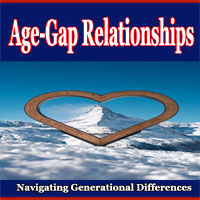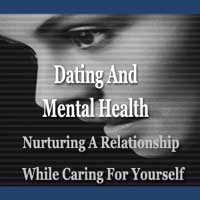


The Key To Personal Growth And Fulfillment

Self-awareness is a fundamental and transformative aspect of human consciousness. It involves the ability to recognize and understand one's own thoughts, emotions, behaviors, and motivations. This self-reflective process allows individuals to gain insights into themselves, leading to personal growth, improved relationships, and a greater sense of fulfillment. In this article, we will explore the significance of self-awareness, how it can be cultivated, and the benefits it brings to our lives.
Understanding Self-Awareness
Self-awareness can be divided into two main components:
Internal Self-Awareness: This involves recognizing your own emotions, strengths, weaknesses, values, and desires. It is the capacity to understand who you are at your core.
External Self-Awareness: This aspect focuses on how others perceive you, how your actions affect them, and the ability to empathize and relate to their perspectives.
The Significance Of Self-Awareness
Improved Decision-Making: Self-aware individuals are better equipped to make sound decisions because they understand their own values and priorities, leading to choices that align with their true selves.
Effective Communication: When you are aware of your emotions and triggers, you can communicate more clearly and authentically. This skill leads to healthier relationships and better conflict resolution.
Enhanced Emotional Intelligence: Self-awareness is a cornerstone of emotional intelligence. It helps you manage your emotions, read others more accurately, and respond with empathy.
Personal Growth: The journey of self-awareness is an essential part of personal growth and self-improvement. It allows you to identify areas that need development and work on them.
Cultivating Self-Awareness
Practice Mindfulness: Mindfulness meditation and awareness exercises can help you become more attuned to your thoughts, emotions, and bodily sensations.
Reflect And Journal: Regular reflection and journaling can help you process your experiences, thoughts, and emotions. Writing about your daily experiences and inner reflections can reveal patterns and triggers.
Seek Feedback: Ask for honest feedback from friends, family, and colleagues. Encourage them to share their perceptions and observations of you.
Use Personality Assessments: Tools like the Myers-Briggs Type Indicator (MBTI) or the Enneagram can provide valuable insights into your personality traits, preferences, and tendencies.
Practice Self-Compassion: Be gentle with yourself. Embrace self-compassion, which means treating yourself with kindness and understanding, particularly when you face personal challenges or setbacks.
Engage In Therapy Or Coaching: Professional guidance from therapists or life coaches can provide structured support for self-awareness and personal growth.
The Benefits Of Self-Awareness
Improved Relationships: Self-aware individuals can relate to others more effectively, leading to deeper, more meaningful connections.
Better Self-Management: Awareness of your triggers and emotions allows you to manage stress and handle difficult situations more gracefully.
Enhanced Career Success: Self-awareness can lead to career success, as you better understand your strengths and areas for development, and can make choices aligned with your goals.
Increased Well-Being: Self-awareness promotes mental and emotional well-being, as it fosters a sense of inner peace and clarity.
Self-awareness is a powerful tool for personal growth and fulfillment. It allows you to understand yourself more deeply, improve your relationships, and make choices that align with your values and aspirations. By cultivating self-awareness through mindfulness, reflection, and seeking feedback, you can embark on a transformative journey of self-discovery and self-improvement.
 Positive Childhood Experiences: The Nurturing Ground For Healthy Adult Relationships
Positive Childhood Experiences: The Nurturing Ground For Healthy Adult Relationships
Positive childhood experiences are akin to nurturing the soil in which healthy adult relationships grow. In such environments, children learn the importance of trust, empathy, and effective communication. These are the building blocks for forming meaningful and lasting emotional connections in adulthood.
Trust: A child who grows up in an environment where trust and reliability are the norm is more likely to trust others in adulthood. Trust forms the bedrock of any meaningful relationship.
Empathy: Childhood experiences that emphasize empathy and compassion help individuals develop a deep understanding of the emotions and needs of others. This skill is pivotal in building strong emotional connections.
Effective Communication: A nurturing childhood encourages open and honest communication. Children who grow up in such environments are better equipped to address issues and conflicts in their adult relationships, fostering better emotional connections.
Boundaries: Learning about personal boundaries early in life helps individuals establish and respect healthy boundaries in their adult relationships, finding the right balance between independence and intimacy.
Challenges Of Negative Childhood Experiences
Conversely, negative childhood experiences can leave a lasting impact on adult relationships. Trauma, neglect, or adverse family dynamics during childhood can hinder an individual's ability to form and maintain healthy connections in adulthood.








The Fascination And Myths
 The "cougar" label has often been accompanied by misperceptions and stereotypes. Many people wrongly assume that older women in these relationships are only seeking physical companionship or younger partners are after financial security. However, like any romantic connection, cougar relationships are based on compatibility, shared interests, and emotional attraction.
The "cougar" label has often been accompanied by misperceptions and stereotypes. Many people wrongly assume that older women in these relationships are only seeking physical companionship or younger partners are after financial security. However, like any romantic connection, cougar relationships are based on compatibility, shared interests, and emotional attraction.
One prevailing myth surrounding cougar relationships is that they are fleeting and solely based on physical attraction. In reality, these relationships can be as deep and meaningful as any other. Emotional connections, shared interests, and a genuine affection for one another can form the bedrock of these romances. Just like any relationship, the key is compatibility and shared values.
Another stereotype that often surfaces in discussions about cougar relationships is the notion that the older partner is in it for the thrill of the chase or to recapture their youth. However, these stereotypes fail to acknowledge the depth of the connection that can exist between older women and their younger partners. Love knows no age, and genuine, loving relationships can develop between people of any age group.
It's crucial to recognize that both partners in a cougar relationship are consenting adults. As long as there is mutual respect and consent, age should not be a barrier to love. Society's perceptions and judgments should not dictate who we love or how we love.
Nurturing Connection And Support
 Effective communication is the lifeblood of any successful relationship, and when mental health is a factor, it becomes even more vital. To nurture a relationship while dealing with mental health challenges, it is essential to communicate openly and honestly with your partner or loved ones. Share your feelings, concerns, and needs with them, helping them understand what you're experiencing.
Effective communication is the lifeblood of any successful relationship, and when mental health is a factor, it becomes even more vital. To nurture a relationship while dealing with mental health challenges, it is essential to communicate openly and honestly with your partner or loved ones. Share your feelings, concerns, and needs with them, helping them understand what you're experiencing.
Empathy And Support
Empathy is a cornerstone of understanding and supporting someone dealing with mental health issues. It involves the ability to place oneself in another's shoes and see the world from their perspective. Offering a compassionate ear and emotional support can be invaluable to your loved one's well-being. Remember that you don't need to have all the answers, but being there and showing that you care can make a significant difference.
Setting Healthy Boundaries
In relationships involving mental health challenges, it's crucial to establish and respect boundaries. Recognize when your loved one needs space or additional support, and communicate about these needs openly. Boundaries help protect both individuals' well-being and maintain the balance in the relationship.
A New Age Of Connections
 2. Accessibility And Convenience
2. Accessibility And Convenience
One of the most significant advantages of online interactions is their accessibility and convenience. From the comfort of your home or wherever you have an internet connection, you can connect with people from around the globe, overcoming the constraints of physical distances.
3. Varied Platforms For Different Needs
The digital landscape provides a myriad of platforms tailored to different needs. Whether you're looking for love, friendship, professional networking, or shared interests, there's an online platform for you. These platforms cater to a wide range of preferences and make it easier to find like-minded individuals.
4. Building Meaningful Connections
Meeting people online isn't solely about quantity; it's about quality. In the digital realm, individuals have the opportunity to build meaningful connections based on shared values, interests, and goals. These connections often lead to deeper and more enduring relationships.
5. Overcoming Shyness And Barriers
For individuals who may be introverted or shy in person, meeting people online can be a liberating experience.
 Secure Attachment And Healthy Adult Relationships
Secure Attachment And Healthy Adult Relationships
A secure attachment in childhood typically results in healthy, balanced adult romantic relationships. Individuals who experienced a supportive and nurturing environment during their early years tend to have a strong sense of self-worth and are comfortable with both intimacy and independence in their relationships. These individuals are better equipped to build and maintain emotional connections based on trust, open communication, and mutual support.
Anxious-Preoccupied Attachment: The Quest For Intimacy
Childhood experiences that lead to anxious-preoccupied attachment can significantly affect adult romantic relationships. People with this attachment style often crave intense emotional connections but may struggle with trust and fear abandonment. They might become overly dependent on their partners, seeking constant reassurance and attention, which can lead to challenges in maintaining a healthy, balanced relationship.
Dismissive-Avoidant Attachment: Fear Of Vulnerability
Childhood experiences marked by emotional neglect or inconsistency can result in dismissive-avoidant attachment. In adult romantic relationships, individuals with this attachment style often maintain emotional independence and may avoid vulnerability. They may find it difficult to form deep emotional connections due to their fear of being hurt or rejected.
Fearful-Avoidant (Disorganized) Attachment: A Complex Mix
The fearful-avoidant or disorganized attachment style is characterized by a blend of anxious and dismissive tendencies. These individuals may have complex emotional connections in their adult relationships, making it challenging to navigate the ebb and flow of emotional intimacy and independence.
Healing And Nurturing Positive Emotional Connections
Recognizing the impact of childhood experiences on adult romantic relationships is a vital first step. To heal and nurture these connections, consider the following: